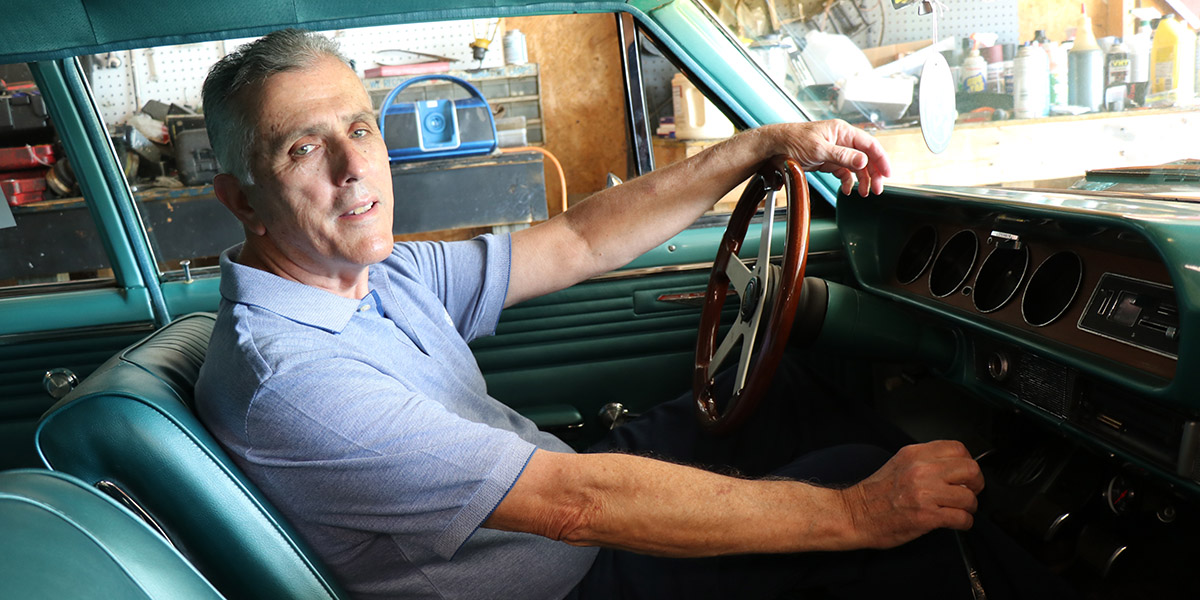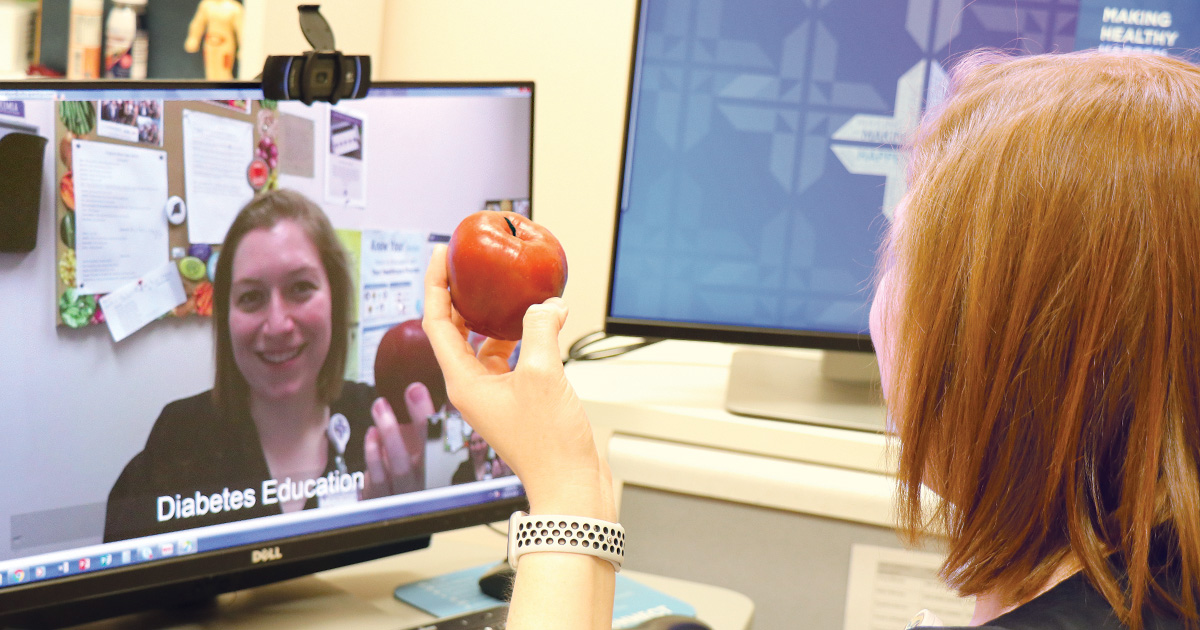
Repairing your body’s “carburetor”
As someone who had already had two open-heart surgeries in 2001 and 2012, Spartanburg native David Adkins was well aware of his heart-related problems. They manifested daily, even when the 70-year-old widower tried to clean house.
“I would tire very easily,” he said.
Then, in April 2018, Adkins became the third patient to have a MitraClip implant at the Spartanburg Regional Heart Center. Today, Adkins exercises by walking four to 12 miles each week often on Spartanburg's popular Rail Trail and he is able to focus on his vintage cars again.
“Cleaning the house is no longer a problem and I can help with taking care of the family,” he said.
The retired information technology professional is thankful for the care he received from his doctors and the Heart Center staff.
“If not caught, [the valve leakage] could have killed me,” he said.
The Heart Center's patient education process made David comfortable about knowing what to expect.
Understanding mitral valve heart problems
When the mitral valve (found between the heart's left atrium and left ventricle) is working properly, it will open and shut with the heart's pumping action. A defective mitral valve is a common heart problem that makes it hard to receive oxygen-enriched blood from the lungs and pump it throughout the body.
Sometimes the valve's seal is not tight enough and it causes blood to “backwash” into the left atrium. This is called mitral regurgitation, and it makes the heart strain to pump harder.
Symptoms of mitral regurgitation include:
- Shortness of breath
- Fatigue
- Coughing
- Lightheadedness
- Swollen feet or ankles
- Excessive urination
Medicines can help with the symptoms, but nothing can cure the problem other than fixing the valve through repair or surgical replacement. When possible, doctors would rather repair the valve instead of replacing it, because replacement requires open-heart surgery — a complex procedure.
Repairing your body's “carburetor”
Think of your heart as a car's carburetor. A carburetor is a chamber that mixes gas with air to make the internal combustion for the car's engine to run. Similarly, your heart is a chamber that mixes blood with oxygen to make the energy you need to live. If something goes wrong with the “mix,” the body can suffer.
Based on your general health and age, your doctor may suggest repairing the valve using transcatheterization, such as the MitraClip.
During this process, the clip is threaded through a tube inside one of the larger veins that starts in the upper leg and leads directly to the heart. Once there, the MitraClip is centered over the failing valve and clips the valve's leaflets together for a better seal. This allows the blood to flow better from the heart.
The MitraClip adjusts the valve's action to cut down on the backwash of blood.
What to expect during the procedure
- The MitraClip implant is normally done in the Heart Center's “cath lab” under general anesthesia.
- A ventilator will help you breathe during the three-to-four hours of surgery.
- The procedure uses a catheter to deliver the dime-size clip to the heart.
- The surgeons will use various types of imaging tools to guide their actions, including X-ray and ultrasound.
After the procedure
Patients are typically discharged from the hospital within 24 to 48 hours, but they often feel better soon after the procedure. Once discharged, most patients don't need extra help to care for themselves. Patients might be prescribed blood-thinning medicines and told to take it easy for a few days while they recover. It is important that patients keep any follow-up doctor appointments, even if they're feeling better.
“I would recommend this over being opened up in heart surgery,” David said. “With open heart, it takes months of recovery. Here, I was released the next day. This has been a cake walk compared to open-heart surgery. The care was excellent; the doctors were excellent. No issues whatsoever.”
For more information about Structural Heart Services available at Spartanburg Regional Heart Center, please call 864-560-8133.












